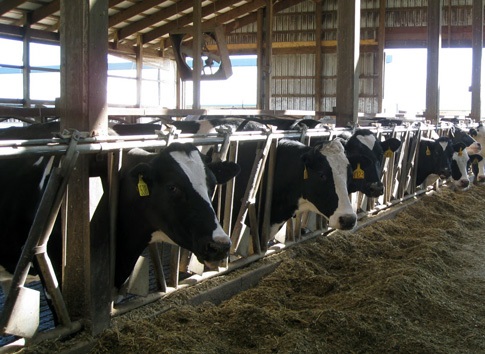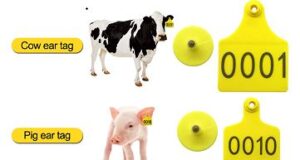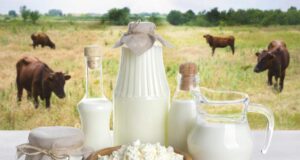Cleaning and disinfecting is imperative to maintain the well being and health of high producing animals, such as dairy cows. Sanitation addresses the cleaning—and disinfection when necessary—of people, equipment, animals and material entering a farm. Routine farm operations such as feeding, milking, animal handling, medical treatments, contact with vehicles and equipment, interactions with service providers and outside visitors, are all possible contact points for the transfer of diseases and pests. Entry and exit routes from buildings and a property have the potential to bring and take away disease-causing organisms.
The presence of organisms in the animal shed contaminates the milk produced thus reducing its self- life, milk produced in an unclean environment is likely to transmit diseases which affect human health.
Similarly, the presence of flies and other insects in the dairy farm area are not only disturbs the animal but also spreads deadly diseases to the animal’s egg. Various problems in practical implementation for prevention of diseases are due to the fact that the majority of livestock is managed by illiterate and ignorant persons who ignore the basic principles of hygiene and sanitation. Majority of causes for spread of diseases could be ascribed to improper sanitation which gives shelter to carriers of germs.
Sunlight is the most potent and powerful sanitizer which destroy most of the disease producing organism. Disinfection of sheds means making animals free from disease producing bacteria and is mainly carried out by sprinkling chemical agents such as bleaching powder, Iodine and Iodophor, sodium Carbonate, Washing Soda, Slaked lime, Quick lime and phenol.
Bacteria are everywhere: in soil, in water, on animals and on humans. The purpose of disinfection is to decrease infection pressure and thus decrease disease prevalence. Choosing the disinfectant adapted to each specific situation leads to effective prevention and a profitable dairy farm.
Hygiene is one of the key parameters ensuring quality and credibility of any dairy farm or production facility. To comply with industry best practices and ensure highest levels of food safety to end consumers, it is imperative to maintain key hygiene standards and monitor performance.
In the area of disease prevention, the veterinarian and other specialists should to work with the livestock producer to form a team that keeps animals healthy. Such programs should include, in addition to the routine immunizations and other clinical-surgical procedures, regular management consultations and provision of advice on nutrition, reproduction and udder health. To be effective, the practitioner must make regular visits and producers must be willing to compensate them for time invested rather than just on a fee-for-service basis.















